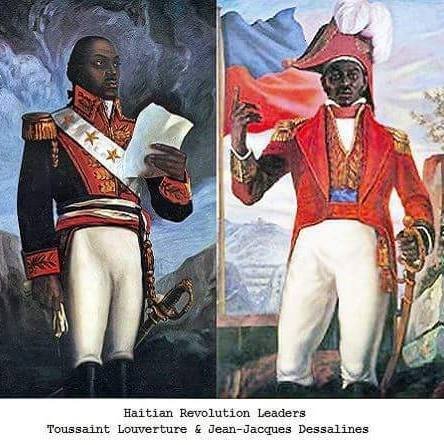Physical Address
304 North Cardinal St.
Dorchester Center, MA 02124
Physical Address
304 North Cardinal St.
Dorchester Center, MA 02124

To craft a blog centered on the unique subject of “Jean-Jacques Dessalines to Toussaint Louverture, 10 Messidor an 8/28 June 1800,” the approach will emphasize a blend of historical accuracy, emotional connection, and truth reclaiming for Haitian and Black diasporic audiences. Here’s a structured outline to guide the content:

In the midst of the Haitian Revolution—a beacon of Black liberation against European tyranny—the summer of 1800 marked a pivotal moment. Revolutionary leaders Jean-Jacques Dessalines and Toussaint Louverture, two titans of resistance, found themselves entrusted with guiding the enslaved masses toward freedom. Dessalines, bold and unyielding, and Louverture, diplomatic and visionary, navigated both unity and tension. On 10 Messidor An 8 of the French Republican calendar (or June 28, 1800, by Gregorian reckoning), Dessalines penned a powerful message to Louverture. That correspondence would resonate not simply as strategy, but as a testament to their complex partnership and shared commitment to liberation.
Set against the ongoing brutalities of colonial Saint-Domingue, this period was fraught with external invasions, treachery, and the Herculean task of dismantling slavery. To understand this exchange between Dessalines and Louverture is to peer into the heartbeat of the revolution itself—a divergence in methods, perhaps, but a unity in ultimate goals: liberty, equality, and a sovereign Black nation.
Despite the monumental success of the Haitian Revolution—being the first and only successful enslaved-people-led revolution in recorded history—Western historiography has strategically muted, misrepresented, or erased its heroes. Jean-Jacques Dessalines, in particular, known as the Father of Haitian Independence, often receives less recognition than Toussaint Louverture. Western narratives frequently lionize Louverture’s diplomatic overtures while maligning Dessalines’ unapologetically militant approach.
The distortion or suppression of such historical contexts is not benign—it is an ongoing act of colonial violence. By highlighting select figures and omitting others, colonial powers sought to undermine the radical nature and lasting anti-colonial message of the Haitian Revolution. Unraveling these erasures is a critical act of reclaiming truth, identity, and sovereignty for all those connected to this proud lineage.
This section will detail the content of Dessalines’ letter to Louverture—its tone, context, and implications:
The tensions between Dessalines’ unyielding militancy and Louverture’s strategic diplomacy mirror modern struggles within Black and diaspora communities worldwide. From debates about direct action versus policy reform in movements like Black Lives Matter, to discussions of Pan-Africanist unity, the revolution’s lessons remain starkly relevant. Just as Dessalines’ contributions have been minimized, modern-day activists advocating radical solutions often face suppression, even within their own ranks.
Moreover, the erasure of Dessalines from dominant historical narratives fuels ongoing patterns of systemic racism and neocolonialism. Reclaiming his legacy offers both a blueprint and rallying cry for today’s movements for racial and economic justice.
Reclaiming the truth about Dessalines, Louverture, and the Haitian Revolution is an act of resistance. Audiences must strive to:
By rewriting history free of colonial filters, we reclaim the tools to rewrite our future.

The letter from Jean-Jacques Dessalines to Toussaint Louverture on that fateful day of 28 June 1800 is not just a historical footnote—it is a symbol of the complexities and contradictions inherent in any radical movement for change. Their partnership advanced the liberation of millions, despite its imperfections. Today, we must honor both their achievements and their lessons, using history as a foundation for empowerment and collective action.
End of document. Feel free to use this outline or request adjustments!